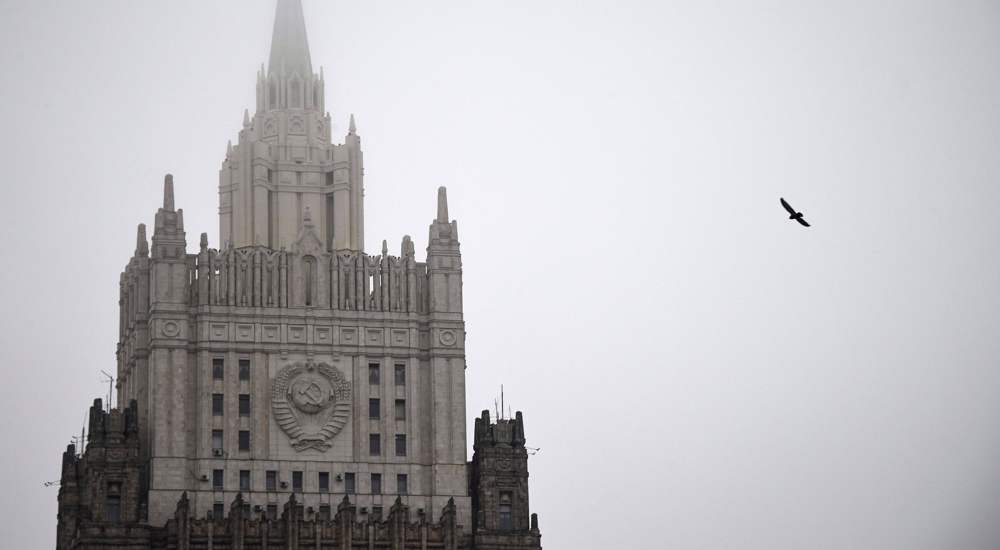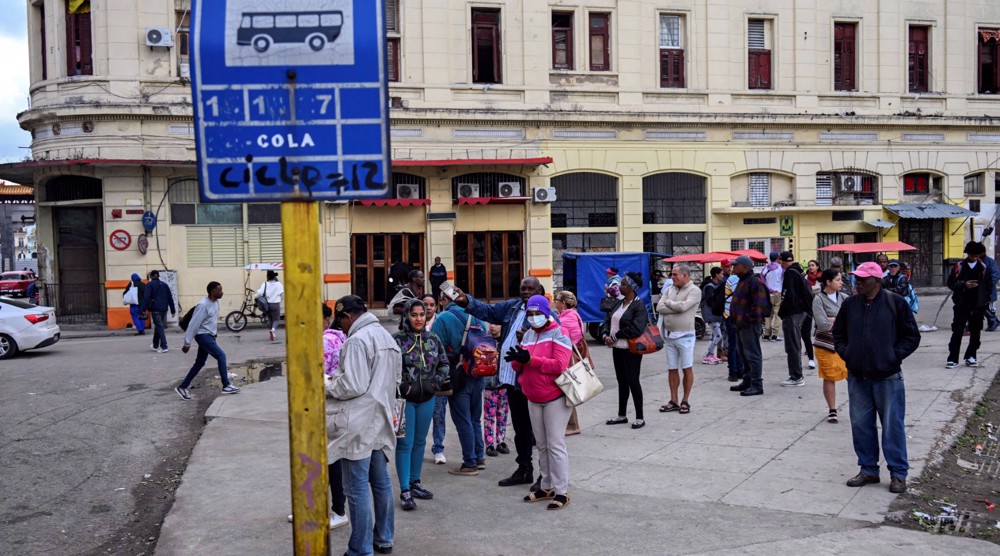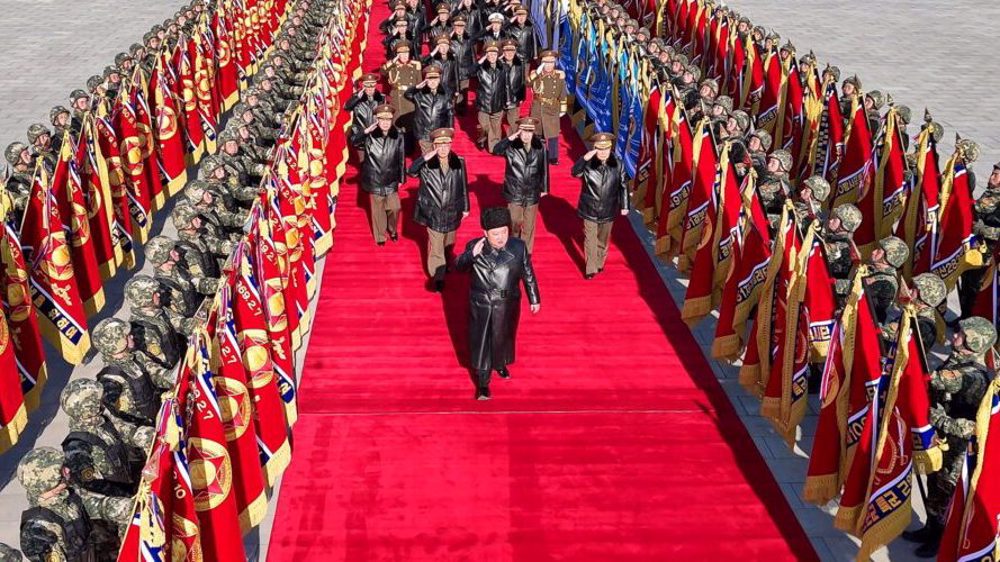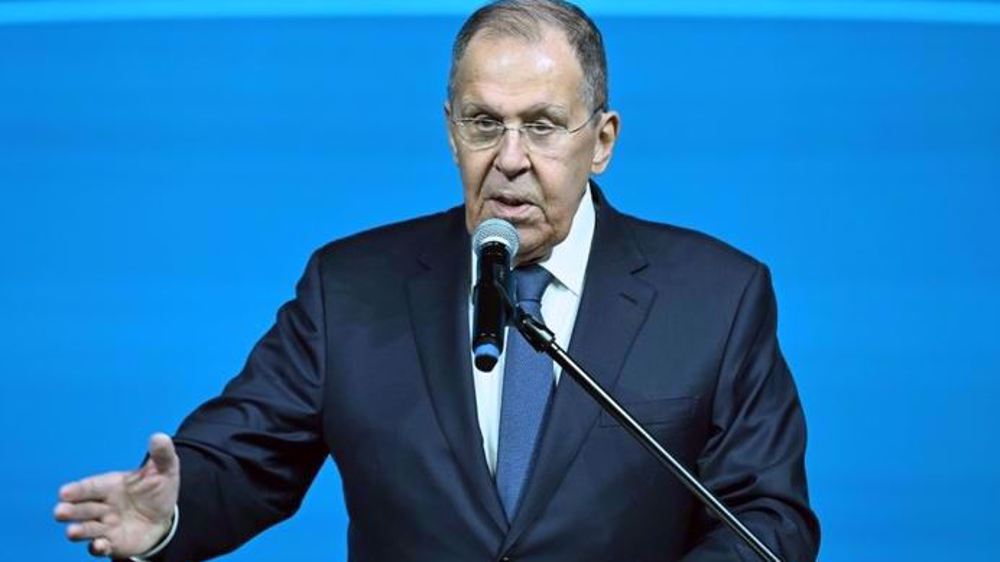Russia blacklists Germany's top security, intelligence officials
Russia has blacklisted Germany's top security and intelligence officials and barred them from entering the country in response to recent restrictive measures imposed by the European Union (EU) over an alleged cyber attack and the purported poisoning of a Russian opposition figure.
The Russian Foreign Ministry also said in a statement on Tuesday that Moscow reserved the right to "use response measures" in the future if Germany continued on the same path.
"In response to the aforementioned destructive actions on the part of the EU, Moscow has decided to expand the list of German citizens who are prohibited from entering Russia," the statement read.
"According to the diplomatic principle of reciprocity, the top officials of the German security and intelligence structures, that are part of the German Defense Ministry's system, have been chosen as new persons in the Russian stop-list," it said.
The bans were introduced in relation to Germany's claims of a "Russian trace" in an alleged cyber attack on the German federal parliament in 2015.
In May, Russian Ambassador to Berlin Sergey Nechaev was summoned after the German prosecution issued an international arrest warrant for Russian citizen Dmitry Badin, suspected of involvement in the alleged hacking attack on the Bundestag in the spring of 2015.
Berlin said Badin had been an employee of a Russian military intelligence agency at the moment of the purported attack.
Russia believes the case was made up to create a pretext for the introduction of a new round of unilateral sanctions against Russia.
In October this year, the EU imposed sanctions on one Russian entity and two Russian citizens over the alleged cyber attack on the German parliament. Brussels also approved the sanctions after Germany and France proposed measures against individuals they deemed responsible for the alleged poisoning of Russian opposition figure Alexei Navalny in August.
Navalny, 44, collapsed during a domestic Russian flight on August 20 and was taken to a local hospital. He was airlifted to Berlin on August 22. Navalny's aides claimed he had been poisoned after drinking a bottle of water at a hotel before the flight.
On September 2, Germany claimed without evidence that the Russian opposition figure had been poisoned with a Novichok nerve agent.
The Russian government has denied any involvement in any attack on Navalny, who was discharged from a Berlin hospital in September.
The Russian doctors who tested Navalny's blood for poisoning before he was moved to Germany said at the time that the test results had come back negative.
Germany has rejected a request by Russian prosecutors to provide Navalny's medical records for a comparative study of his condition.
The latest tit-for-tat sanctions were announced after Moscow recently summoned top diplomats from three EU countries. German, French, and Swedish representatives were called to the Russian Foreign Ministry in "connection with the introduction of EU anti-Russian sanctions."
Russia's Foreign Minister Sergei Lavrov had already said that Moscow would soon announce punitive measures against senior French and German officials in retaliation for the introduction of sanctions against Russia.
Lavrov and other senior Russian officials have strongly denounced the EU for adopting the "US style of threatening and punishing states with sanctions."
Iran warns Epstein scandal may be part of Israel's political project
Iran emerges key link in China-Europe trade axis
Pezeshkian calls for mass turnout in February 11 rallies to defy foreign pressure
Leader grants pardons, sentence reductions to more than 2,000 convicts
VIDEO | Thousands protest in Australian cities against Israeli President Herzog’s visit
#IR47: Iran’s tourism boom since 1979 Islamic Revolution, driving economy, generating jobs
Palestinian activist in ICE detention 'missing' after medical emergency
Any enemy miscalculation will be met with ‘unprecedented’ response: Iran army chief















 This makes it easy to access the Press TV website
This makes it easy to access the Press TV website